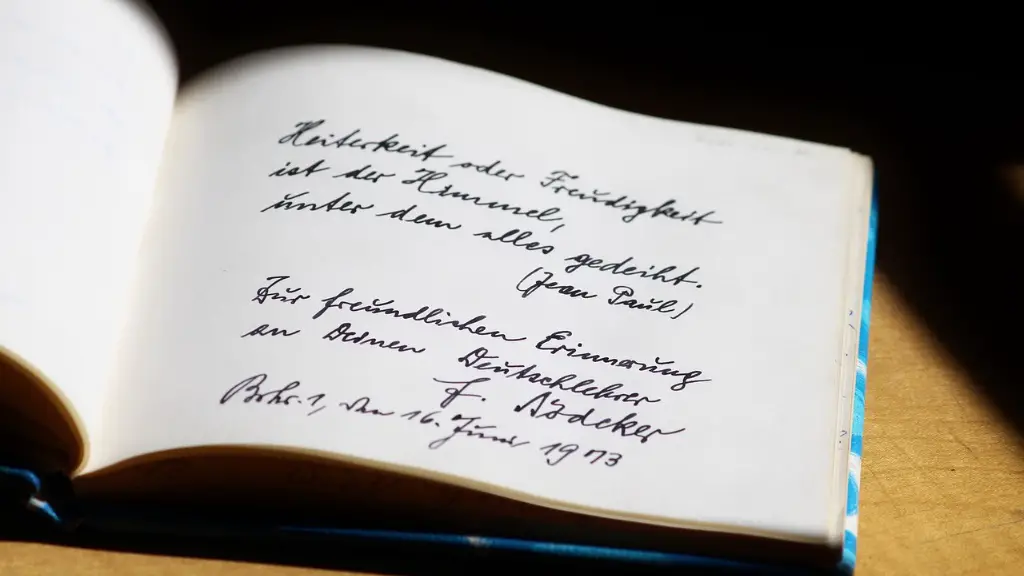Langston Hughes was born on February 1, 1902 in Joplin, Missouri, the second child of his parents, James Nathaniel and Carrie M. Hughes. His parents divorced when he was very young, and his mother moved to Ohio while his father moved to Mexico. He ended up being raised primarily by his grandmother, Mary Langston, within the African American community. Langston Hughes was a poet, novelist, playwright, and a master of the creative arts. His works of poetry and prose illustrated the lives of African Americans with passion and style.
From an early age, Langston Hughes showed a talent as a writer and a poet. He educated himself on the stories and beliefs of African American culture, which formed the central theme of much of his work. His first poem, “The Negro Speaks of Rivers”, was published in The Crisis, the magazine of the National Association for the Advancement of Colored People (NAACP). This poem marked the beginning of the Harlem Renaissance, a period in the early 20th century when African American artists and writers embraced their culture, and it made Langston Hughes famous.
Langston Hughes’s poetry and prose explored the experiences between African Americans and whites, bringing attention to the struggles they faced. His writings often discussed themes of racial identity, racism, and alienation. He wrote about the everyday life of the African American people that lived in Harlem, the northern neighborhoods of New York City, and race in general. Through his work, he encouraged African Americans to embrace their culture and to be proud of their heritage. His focus on the African American experience and his deep insight into racial issues established him as a distinctive voice in American literature.
In his later works, Langston Hughes moved away from poetry and focused on novels and plays. He wrote about the experience of African Americans in the United States, exploring themes of racism and injustice with great sensitivity and insight. He wrote about the struggles of the African American people and of their shared unity. He also wrote about the power of music and the importance of maintaining African American culture. From the jazz of the street to the spirituals of the plantation, Hughes explored the soulful sounds of African Americans and their importance in the community of Harlem.
Langston Hughes’s writings were widely published and celebrated during his lifetime, and he has been described as one of the most important figures of the Harlem Renaissance. His legacy continues to inspire writers and readers alike. His poems and stories may be rooted in the African American experience, but they transcend race, age and culture, speaking to the struggles and joys of humanity. He was a pioneer in American literature, an outspoken advocate for African American culture, and his work continues to be appreciated today.
Significance of Langston Hughes
Langston Hughes’s work is widely celebrated for its insight, passion, and its inimitable style. Throughout his career, Hughes wrote about the African American experience with a unique understanding and empathy. He explored the hopes, dreams, and struggles of African Americans and in doing so, captured the essence of the community he wrote about. His stories are full of tenderness and strength, joy and sorrow. He wrote from the perspective of oppression, providing a voice for the voiceless and bringing a new appreciation for the African American experience.
Hughes also wrote about broader issues in American culture such as education and religion. His works were widely read, both within the African American community and beyond. He was a prolific writer who wrote both fiction and non-fiction, and his influence is evident in many writers who followed him, including Toni Morrison, James Baldwin, and Richard Wright.
Although Hughes’s work is rooted in the African American experience, it speaks to a wider audience. His poetry and stories touched on a range of topics, from the everyday struggles of the working class to the larger issues of racial injustice. His writing was not exclusively about African American experience, but about the shared human experience, and his words are just as powerful and relevant today as they were when he wrote them.
Legacy of Langston Hughes
The legacy of Langston Hughes continues to endure. He has been credited with inspiring many of today’s black writers, particularly poets. His work has been widely anthologized, and he was a groundbreaking figure in the Harlem Renaissance. He has long been recognized as an important figure in American literature, and his influence can still be felt today.
The Langston Hughes Society was established in 1990 to honor the memory of Hughes and to celebrate his legacy. The aims of the Society are to promote scholarship and appreciation of Hughes’s work, to encourage dialogue and understanding between races and cultures, and to continue his legacy in American literature. The society has emerged as a major force in the study and appreciation of Hughes, and it hosts an annual Langston Hughes Festival.
In addition, there are schools, libraries and centers devoted to his work, as well as museums that preserve his legacy. His manuscripts, books and photographs can still be found in many libraries and archives. The Langston Hughes Prize was established in 2018 to honor contributions to African American Studies and recognize influential figures who continue to build upon Hughes’s legacy.
Criticism of Langston Hughes
Langston Hughes’s views were often controversial, and he was criticized by some intellectuals in the African American community who felt his work was centered too much around jazz and blues music, and that it was not sufficiently politically charged. He also faced criticism from some on the Left who felt he romanticized the African American experience. Still, as a respected poet and novelist, his criticisms were mostly overshadowed by the power of his words and his insight into race, social issues, and the African American experience.
He was also criticized for the perceived passivity of some of the characters in his plays and stories, although in fact Hughes sought to explore racial injustice within the confines of the African American community. He was frequently challenged for his outspokenness and willingness to tackle social and political issues head-on.
Many of Hughes’s works have become classics and have earned him a place as a major figure in American literature. His work is recognized for its passion, insight, and its empathy. His work is still highly relevant today, and there is no doubt that his words will continue to move and inspire readers for generations to come.
Works of Langston Hughes
Langston Hughes wrote prolifically throughout his career. In addition to his poetry, he wrote several novels and plays, including ‘Not Without Laughter’ (1930), an exploration of life in an African American family; ‘The Big Sea’ (1940), a memoir of his travels in America and abroad; and ‘The Ways of White Folks’ (1934), a short story collection. He also wrote several plays which were produced off-Broadway, including ‘Mule Bone’ (1931) and ‘Simply Heavenly’ (1955).
Hughes’s poetry has been collected in several volumes, including ‘The Weary Blues’ (1926), ‘The Dream Keeper and Other Poems’ (1932), ‘Montage of a Dream Deferred’ (1951), and ‘The Panther and the Lash’ (1967). Additionally, Hughes edited several anthologies of African American literature, and he published a volume of autobiography in 1959, ‘I Wonder as I Wander.’
Langston Hughes’s influence on American literature has been profound. His work is characterized by a poetic voice that speaks to the shared experience, embracing the struggles of African Americans while expressing the power of celebration and hope. His work has and continues to be embraced by readers all over the world.
Conclusion of Langston Hughes
Langston Hughes was born in Joplin, Missouri in 1902. His influence as a poet, novelist, and playwright was profound, and he is widely regarded as one of the most important figures of the Harlem Renaissance. His works of poetry and prose explored the lives of African Americans in their struggle against the racism and injustice they faced, and he encouraged African Americans to be proud of their heritage. His work has been recognized for its insight, passion, and its profound ability to speak to readers across all ages and cultures.




